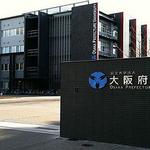Osaka Prefecture University (Osaka Prefecture University) Introduction
Overview
Established in 1883, renamed Naniwa University in 1949, officially renamed Osaka Prefecture University in 1955, and merged with Osaka City University to become Osaka Public University in 2022.
Type: Public University in Japan
Abbreviated as: "Fuda" (ふだい) or "OPU"
Geographical location: Located in Sakai City, Habikino City, and Izumisano City, Osaka Prefecture, Japan. The specific address is:
Sakai Campus: 〒590-0035 1-1 Chikusa-cho, Higashi-ku, Sakai City, Osaka Prefecture
Habikino Campus: 〒596-0017 1-1 Fujido, Habikino City, Osaka Prefecture
Izumisano Campus: 〒597-0034 1-1 Matsubara, Izumisano City, Osaka Prefecture
Number of students: About 12,000 (as of the latest data).
Educational philosophy
Osaka Prefecture University takes "freedom, creativity, and symbiosis" as its educational philosophy, emphasizing that students should not only master solid professional knowledge, but also have innovative thinking and practical ability. The school is committed to cultivating talents with high professional quality and innovative ability for society through education and research.
Departments and Faculties
Department of Engineering:
Mechanical Engineering
Electrical and Electronic Engineering
Information Engineering
Construction Engineering
Environmental Engineering
Bio-Resource Engineering
Department of Science:
Mathematics
Physics
Chemistry
Biology
Earth Environment
Department of Agriculture:
Agriculture
Bio-Resource Engineering
Environmental Science
Department of Veterinary Medicine:
Veterinary Science
Department of Pharmacy:
Pharmacy
Department of Nursing:
Nursing
Department of Human Sciences:
Human Health
Human Society
Department of Economics:
Economics
Department of Business Administration:
Business Administration
Graduate School
Graduate School of Engineering:
Master's Program: Mechanical Engineering, Electrical and Electronic Engineering, Information Engineering, Construction Engineering, Environmental Engineering, Bio-Resource Engineering
Doctoral Program: Engineering
Graduate School of Science:
Master's Program: Mathematical Sciences, Physics, Chemistry, Life Sciences, Earth Environment Environmental Science Major
Doctoral Course: Science Major
Graduate School of Agriculture:
Master's Course: Agriculture Major, Bioresource Major, Environmental Science Major
Doctoral Course: Agriculture Major
Graduate School of Veterinary Medicine:
Master's Course: Veterinary Major
Doctoral Course: Veterinary Major
Graduate School of Pharmacy:
Master's Course: Pharmacy Major
Doctoral Course: Pharmacy Major
Graduate School of Nursing:
Master's Course: Nursing Major
Doctoral Course: Nursing Major
Graduate School of Human Sciences:
Master's Course: Human Health Major, Human Sociology Major
Doctoral Course: Human Sciences Major
Graduate School of Economics:
Master's Course: Economics Major
Doctoral Course: Economics Major
Graduate School of Business Administration:
Master's Course: Business Administration Major
Doctoral Course: Business Administration Major
Specialized Courses
Department of Mechanical Engineering: Teaching mechanical engineering theory and practice, cultivating professionals with mechanical design and manufacturing capabilities.
Department of Electrical and Electronic Engineering: Teaching electrical and electronic engineering theory and practice, cultivating professionals with electrical and electronic design and application capabilities.
Information Engineering: Teaching information technology and information management, cultivating professionals with information management and technology development capabilities.
Construction Engineering: Teaching civil engineering theory and practice, cultivating professionals with civil design and construction capabilities.
Environmental Engineering: Teaching environmental engineering theory and practice, cultivating professionals with environmental management and protection capabilities.
Biological Resources Engineering: Teaching biological resource management and utilization, cultivating professionals with biological resource management and utilization capabilities.
Mathematics: Teaching mathematical theory and application, cultivating professionals with mathematical research and application capabilities.
Physics: Teaching physical theory and experiments, cultivating professionals with physical research and application capabilities.
Chemistry: Teaching chemical theory and experiments, cultivating professionals with chemical research and application capabilities.
Biology: Teaching biological theory and experiments, cultivating professionals with biological research and application capabilities.
Earth Environment: Teaching earth environment science theory and practice, cultivating professionals with earth environment management and protection capabilities.
Agricultural: Teaching agricultural science theory and practice, cultivating professionals with agricultural production and management capabilities.
Biological Resources Discipline: teaches biological resource management and utilization, and cultivates professionals with the ability to manage and utilize biological resources.
Environmental Science Discipline: teaches environmental science theory and practice, and cultivates professionals with environmental management and protection capabilities.
Veterinary Discipline: teaches veterinary theory and practice, and cultivates professionals with veterinary diagnosis and treatment capabilities.
Pharmacy Discipline: teaches pharmacy theory and practice, and cultivates professionals with drug research and application capabilities.
Nursing Discipline: teaches nursing theory and practice, and cultivates nurses with nursing professional capabilities.
Human Health Discipline: teaches human health theory and practice, and cultivates professionals with health management and service capabilities.
Human Society Discipline: teaches sociological theory and practice, and cultivates professionals with social research and service capabilities.
Economic Discipline: teaches economic theory and practice, and cultivates professionals with economic research and management capabilities.
Business Discipline: teaches management theory and practice, and cultivates professionals with corporate management and service capabilities.
Teaching Facilities
Classrooms: equipped with advanced teaching equipment and multimedia facilities.
Laboratories: provide special laboratories for students to conduct experiments and practical exercises.
Library: Rich in books, providing all kinds of professional books and journals.
Computer room: Equipped with high-performance computers and professional software to support students in digital design and production.
Affiliated hospital: Osaka Prefecture University Hospital, providing clinical internship and research opportunities.
Simulation ward: Equipped with advanced medical equipment, used to simulate clinical scenarios and improve students' practical ability.
Campus life
Student clubs: The school has many student clubs, including art clubs, sports clubs, etc., to enrich students' extracurricular life.
Campus activities: Cultural festivals, sports games, academic seminars and other activities are held regularly to enhance students' teamwork and social skills.
Contact information
Address: 1-1 Chikusa-cho, Higashi-ku, Sakai City, Osaka Prefecture, 〒590-0035
Tel: +81-72-251-9111
Fax: +81-72-251-9112
Email: info@opu.ac.jp
Employment support
Career Development Center: Provides students with employment guidance and internship opportunities to help them enter the workplace smoothly.
Corporate Cooperation: We have established cooperative relationships with many companies and institutions to provide students with internship and employment opportunities.
The latest data shows that the employment rate of graduates is over 85%.
Internationalization
International Exchange: The school actively promotes international exchanges and has established cooperative relationships with universities in many countries and regions, providing students with abundant overseas study opportunities.
Language Support: Provide Japanese and English support for international students to help them better adapt to study and life.
Featured Projects
Internship Projects: The school cooperates with many companies and institutions to provide students with abundant internship opportunities and help students apply theoretical knowledge to practical work.
Community Service: Encourage students to participate in community service activities to cultivate their sense of social responsibility and practical ability.
-
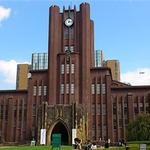
The University of Tokyo
-
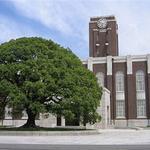
Kyoto University
-
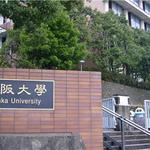
Osaka University
-
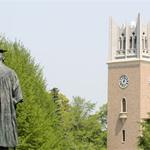
Waseda University
-
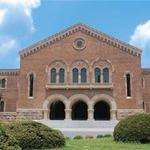
Hitotsubashi University
-
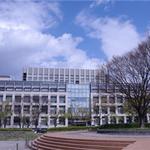
Nagoya University
-
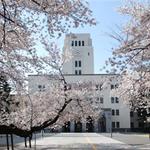
Tokyo Institute of Technology
-
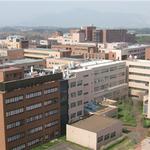
University of Tsukuba
-
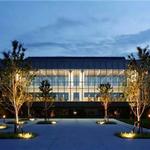
Keio University
-
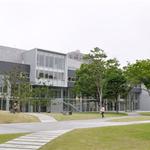
Tohoku University
-

Mesoamerican University
-

Istmo University
-

Mariano Galvez University of Guatemala
-

Regional University of Guatemala
-

Galileo University
-

Francisco Marroquín University
-

Rafael Landívar University
-

University of the Valley of Guatemala
-

University of San Carlos of Guatemala
-

Technological Institute of Tlaxcala Plateau
-

Golfo University
-

Technological University of South Sonora
-

Technological University of Huejotzingo
-

Tizimín Institute of Technology
-

Chilpancingo Institute of Technology

